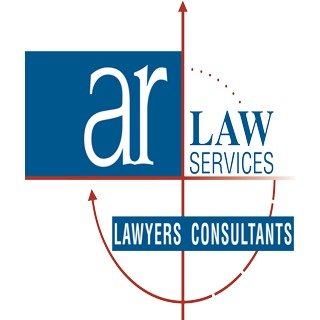Best Discrimination Lawyers in Melbourne
Share your needs with us, get contacted by law firms.
Free. Takes 2 min.
List of the best lawyers in Melbourne, Australia
About Discrimination Law in Melbourne, Australia
Discrimination law in Melbourne, Australia is governed by the Equal Opportunity Act 2010 (VIC) and the Charter of Human Rights and Responsibilities Act 2006 (VIC). These legislative benchmarks ensure that individuals are treated fairly, without prejudice based on factors like gender, race, disability, religion, and sexual orientation among others. Retail, employment, housing, and public services are some areas where discrimination laws apply.
Why You May Need a Lawyer
Seeking legal help in cases of discrimination can be essential in common situations such as workplace disputes-like unfair termination, unequal pay, or lack of promotion due to prejudice-and disputes in education settings. Additionally, individuals who have experienced discrimination in housing or are victims of hate crimes can also benefit from consulting a lawyer. A law professional can provide insightful advice, craft a strong case and negotiate settlements for the victim.
Local Laws Overview
The primary law that governs discrimination in Melbourne is the Equal Opportunity Act 2010 (VIC), which makes it unlawful to discriminate, sexually harass, or victimise people based on the protected characteristics. Further, the Charter of Human Rights and Responsibilities Act 2006 safeguards the freedom, respect, equality, and dignity of all individuals. Lastly, the Fair Work Act 2009 (Cth) addresses workplace discrimination at the national level.
Frequently Asked Questions
What is considered discrimination under law?
Any form of unfair treatment based on someone's personal characteristics-such as age, disability, race, sex, intersex status, gender identity and sexual orientation-can be considered discrimination under the law.
How can I prove discrimination?
Proving discrimination often requires tangible evidence of prejudiced behaviour and its impact. This could be in the form of written communications, testimonies from witnesses, or substantial changes in treatment after a protected characteristic becomes known.
Can I claim for compensation if I am a victim of discrimination?
Yes, you can claim compensation if you are a victim of discrimination. Depending on the circumstances, compensation can be claimed for lost income, emotional distress, and punitive damages. An experienced lawyer can guide you through this process.
What are my rights if I have been discriminated against at my workplace?
If you are discriminated against at your workplace, you have a right to lodge a complaint with the Victorian Equal Opportunity and Human Rights Commission. You may also take the matter to the Fair Work Commission if it pertains to unfair dismissal, workplace bullying, or adverse action.
Can a business refuse to serve me based on my protected characteristics?
No, businesses are required by law to not discriminate against individuals based on protected characteristics. This includes the provision of goods and services. If you experience such a situation, you might have a valid legal complaint.
Additional Resources
The Victorian Equal Opportunity and Human Rights Commission, and the Fair Work Commission are two major governmental bodies that you can reach out to in matters of discrimination. The Human Rights Law Centre and Justice Connect also offer free legal advice.
Next Steps
If you need legal assistance, start by contacting a reputable law firm specializing in discrimination issues. Rest assured, the lawyer will guide you through the relevant processes including pre-trial investigations, potential settlement negotiations, and even a court trial if necessary. Always remember to collect any physical or digital evidence as it could substantiate your claim.
Lawzana helps you find the best lawyers and law firms in Melbourne through a curated and pre-screened list of qualified legal professionals. Our platform offers rankings and detailed profiles of attorneys and law firms, allowing you to compare based on practice areas, including Discrimination, experience, and client feedback.
Each profile includes a description of the firm's areas of practice, client reviews, team members and partners, year of establishment, spoken languages, office locations, contact information, social media presence, and any published articles or resources. Most firms on our platform speak English and are experienced in both local and international legal matters.
Get a quote from top-rated law firms in Melbourne, Australia — quickly, securely, and without unnecessary hassle.
Disclaimer:
The information provided on this page is for general informational purposes only and does not constitute legal advice. While we strive to ensure the accuracy and relevance of the content, legal information may change over time, and interpretations of the law can vary. You should always consult with a qualified legal professional for advice specific to your situation.
We disclaim all liability for actions taken or not taken based on the content of this page. If you believe any information is incorrect or outdated, please contact us, and we will review and update it where appropriate.








